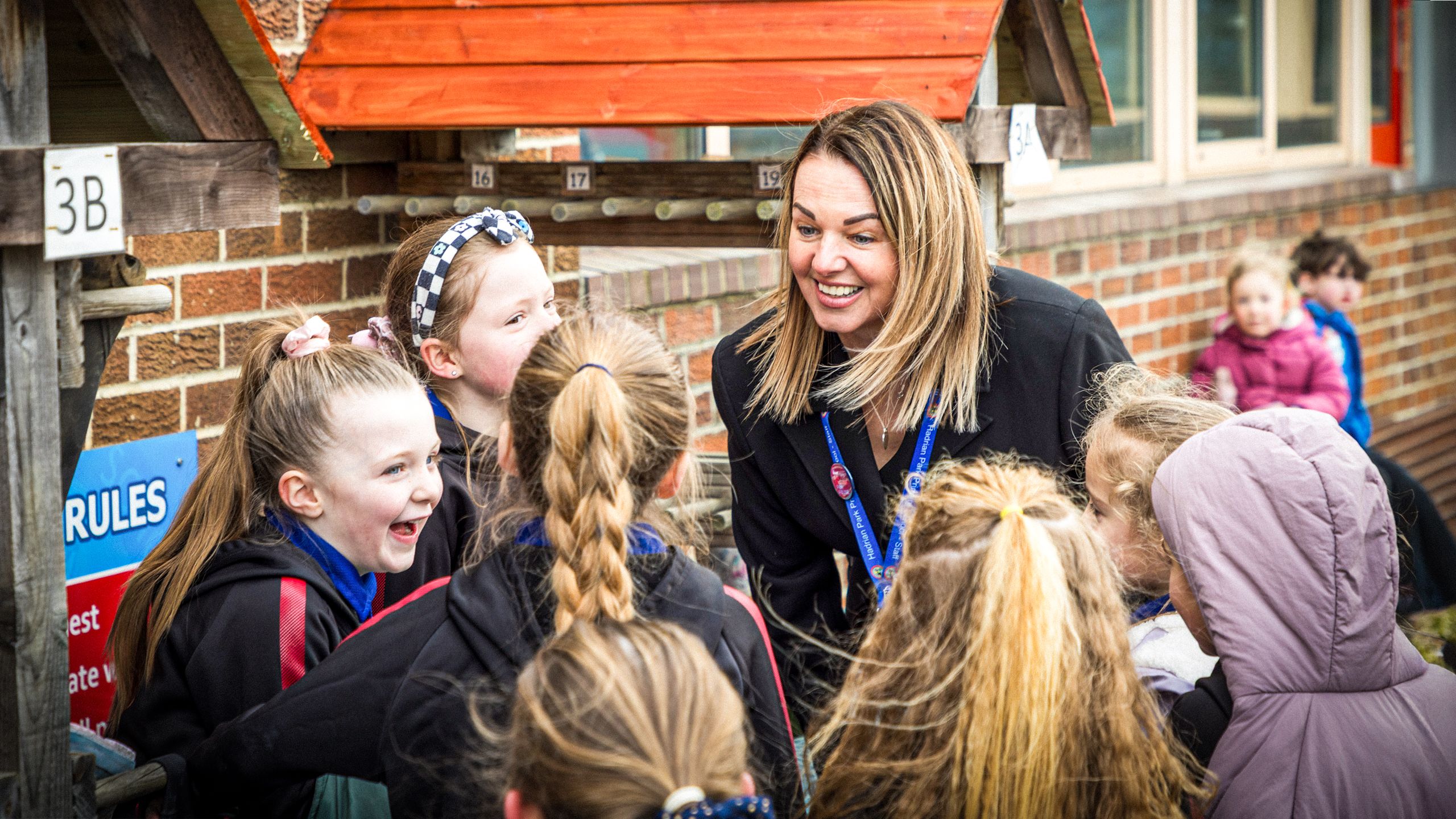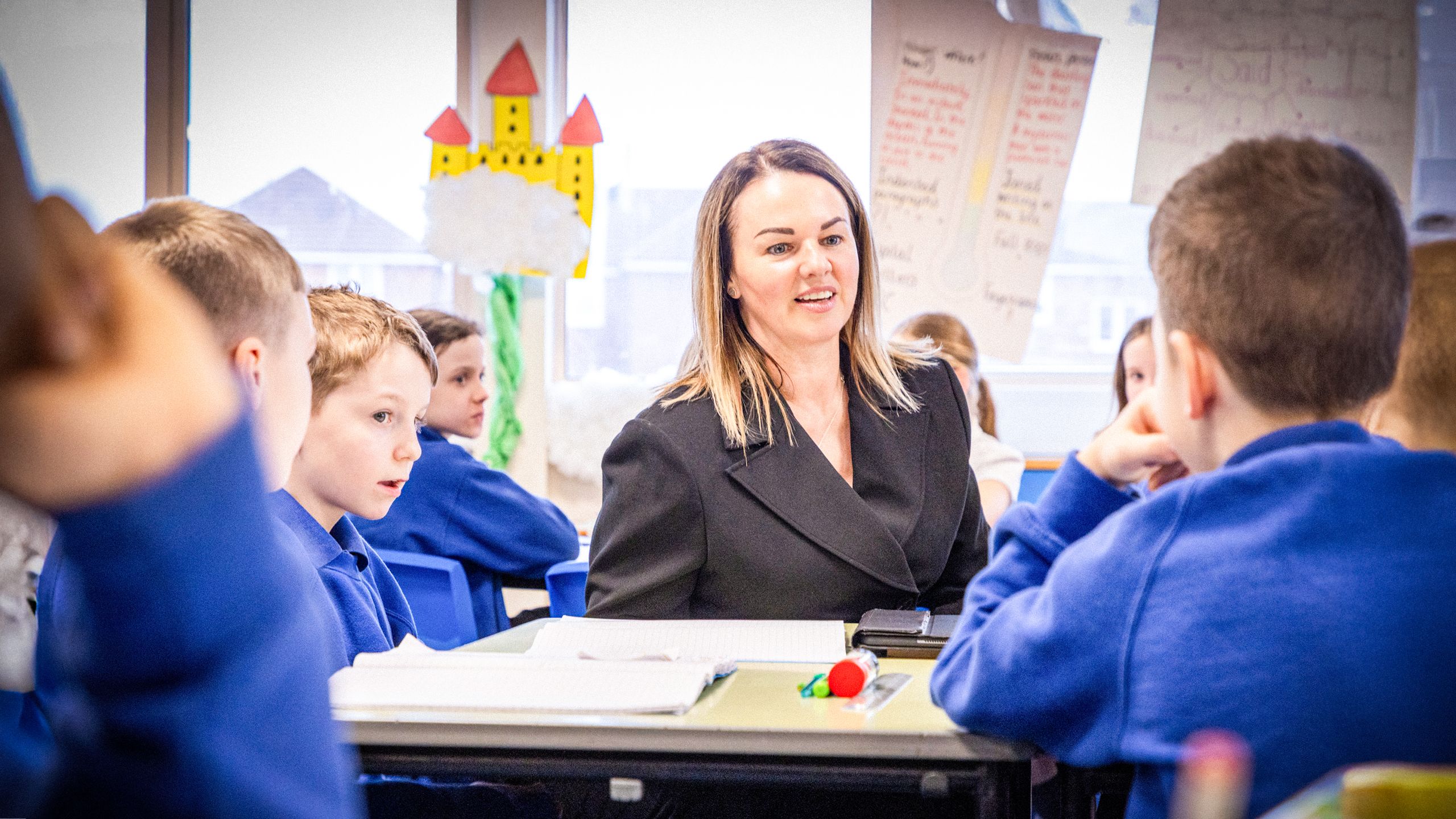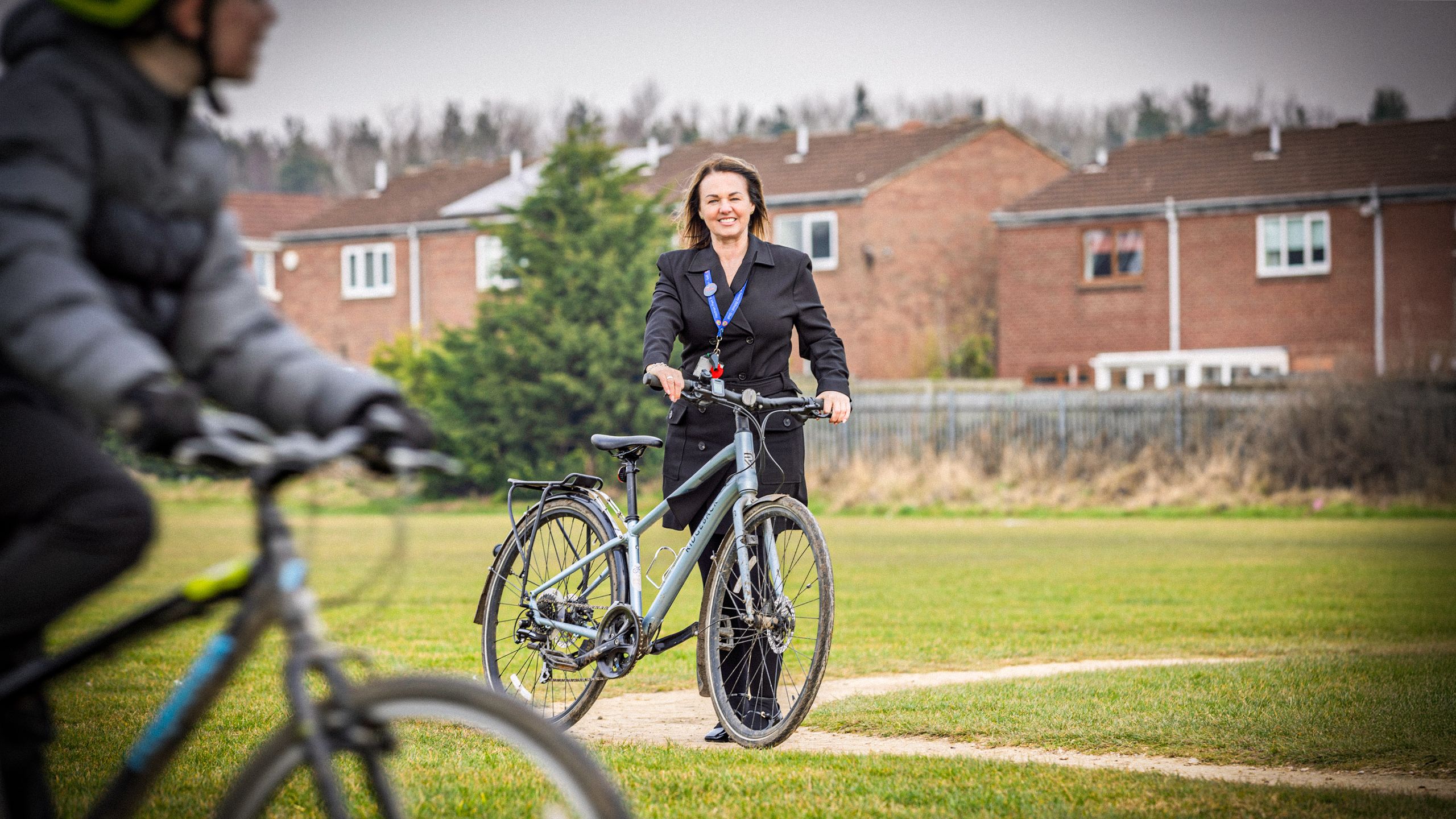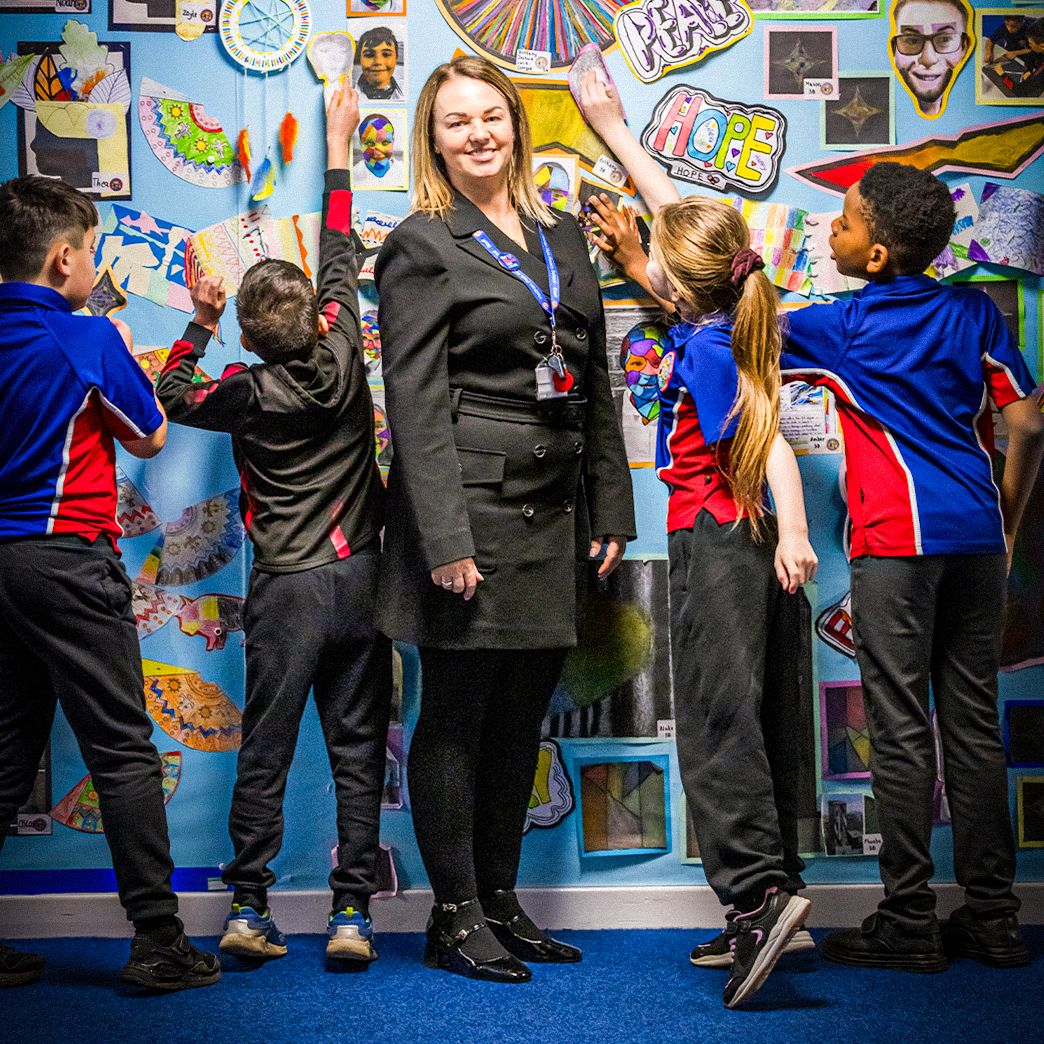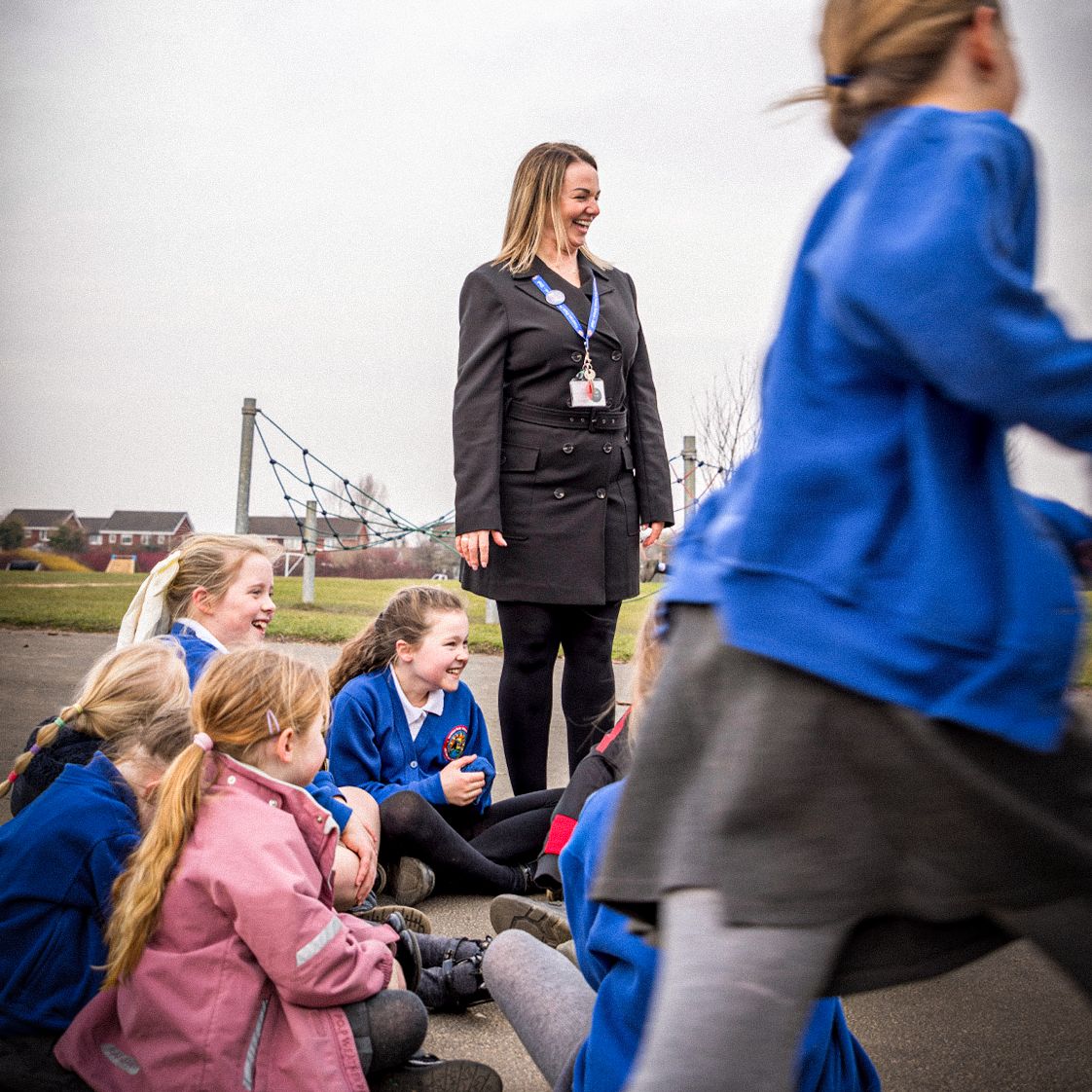“Every child matters, and every single day matters.”
Restoring pride, joy and purpose to the role of school leader

“Every child matters, and every single day matters.”
Restoring pride, joy and purpose to the role of school leader

Journalist Nic Paton previews this year’s Annual Conference and talks to incoming NAHT president Angi Gibson about her ethos and priorities for her presidential year.
A new chapter:
Bringing joy back to leadership
Between covid-19, the grinding years of revolving-door education secretaries and collapsing Conservative governments, punishing workloads, pay erosion, high-stakes accountability, and crises in recruitment, retention, and special educational needs and disabilities, it’s perhaps fair to say there hasn’t been much fun in the school leader ‘conversation’ in recent years.
Incoming NAHT president Angi Gibson is looking to use her presidency year to rectify that. “I’m perhaps something of a Duracell bunny,” she laughs. “Yes, leadership is about responsibility, but it should also be about joy, inspiration and the privilege of shaping young lives. I want to bring back the sense of fulfilment that should come with being a school leader,” she tells Leadership Focus.
For too long, head teachers have shouldered the blame for society’s wider problems, she emphasises.
“We have, for too long, been battered with everything and we became the scapegoat for everything that has gone wrong in society. We are educationalists, not magicians,” Angi adds, with her presidency set to be very much about restoring pride, joy and purpose to the role of school leader.
Angi will set out her priorities for her presidential year at the NAHT Annual Conference in Harrogate in May (see the panel for more on this), taking over from Rachel Younger at the start of the new school year in September. Head teacher at Hadrian Park Primary School in Wallsend for the past decade, Angi has been a passionate supporter of NAHT since joining the union as a deputy head teacher in 2009.
In her time, she has been the deputy head teacher sector representative and north east regional representative; served on the primary sector council, finance and people committee, and international committee; and chaired both the practice committee and the legal representation committee.
Incoming NAHT president Angi Gibson.
Incoming NAHT president Angi Gibson.
A new chapter:
Bringing joy back to leadership
Between covid-19, the grinding years of revolving-door education secretaries and collapsing Conservative governments, punishing workloads, pay erosion, high-stakes accountability, and crises in recruitment, retention, and special educational needs and disabilities, it’s perhaps fair to say there hasn’t been much fun in the school leader ‘conversation’ in recent years.
ANGI GIBSON,
INCOMING NAHT PRESIDENT
Incoming NAHT president Angi Gibson is looking to use her presidency year to rectify that. “I’m perhaps something of a Duracell bunny,” she laughs. “Yes, leadership is about responsibility, but it should also be about joy, inspiration and the privilege of shaping young lives. I want to bring back the sense of fulfilment that should come with being a school leader,” she tells Leadership Focus.
For too long, head teachers have shouldered the blame for society’s wider problems, she emphasises.
“We have, for too long, been battered with everything and we became the scapegoat for everything that has gone wrong in society. We are educationalists, not magicians,” Angi adds, with her presidency set to be very much about restoring pride, joy and purpose to the role of school leader.
Angi will set out her priorities for her presidential year at the NAHT Annual Conference in Harrogate in May (see the panel for more on this), taking over from Rachel Younger at the start of the new school year in September. Head teacher at Hadrian Park Primary School in Wallsend for the past decade, Angi has been a passionate supporter of NAHT since joining the union as a deputy head teacher in 2009.
In her time, she has been the deputy head teacher sector representative and north east regional representative; served on the primary sector council, finance and people committee, and international committee; and chaired both the practice committee and the legal representation committee.
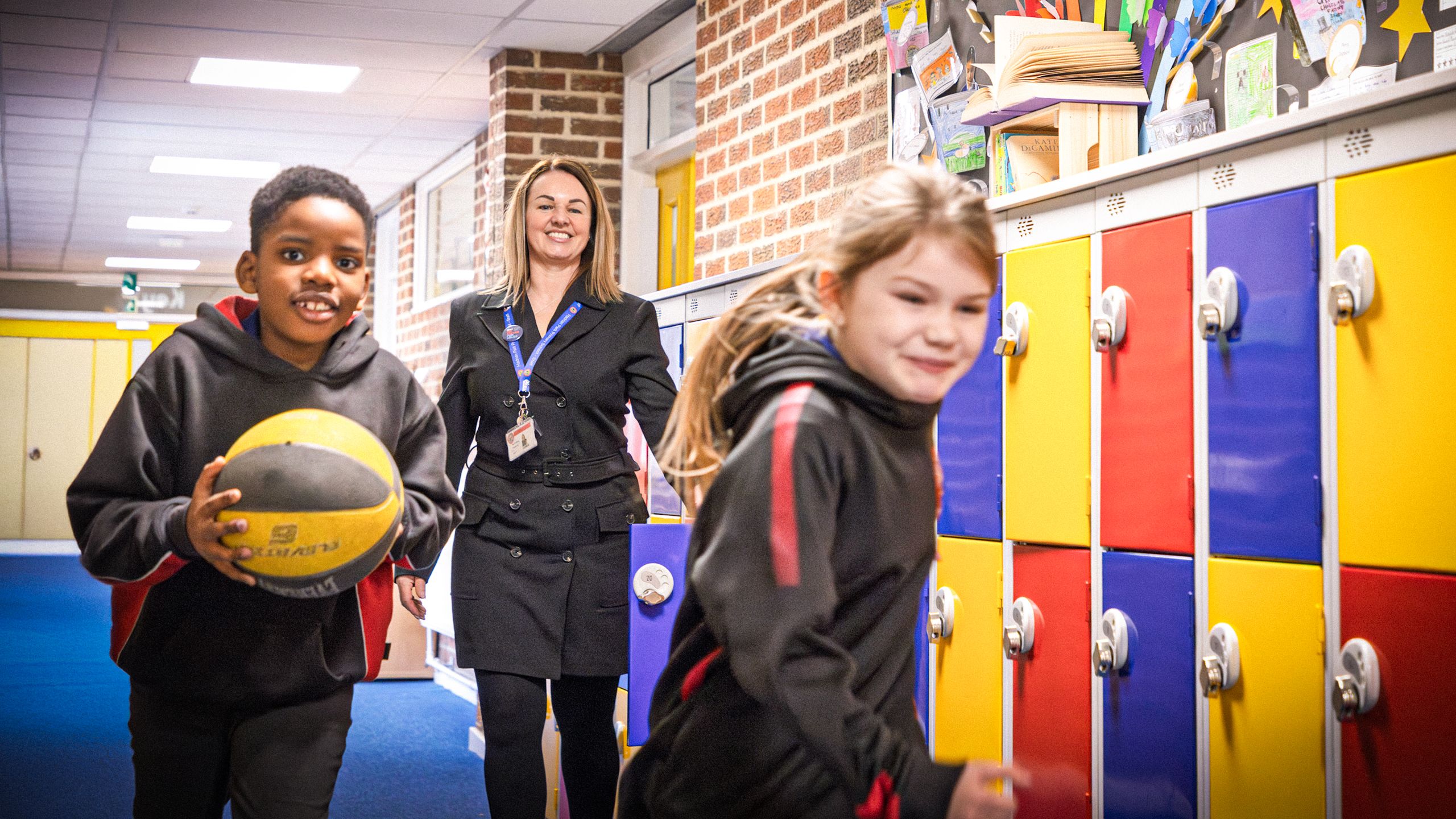
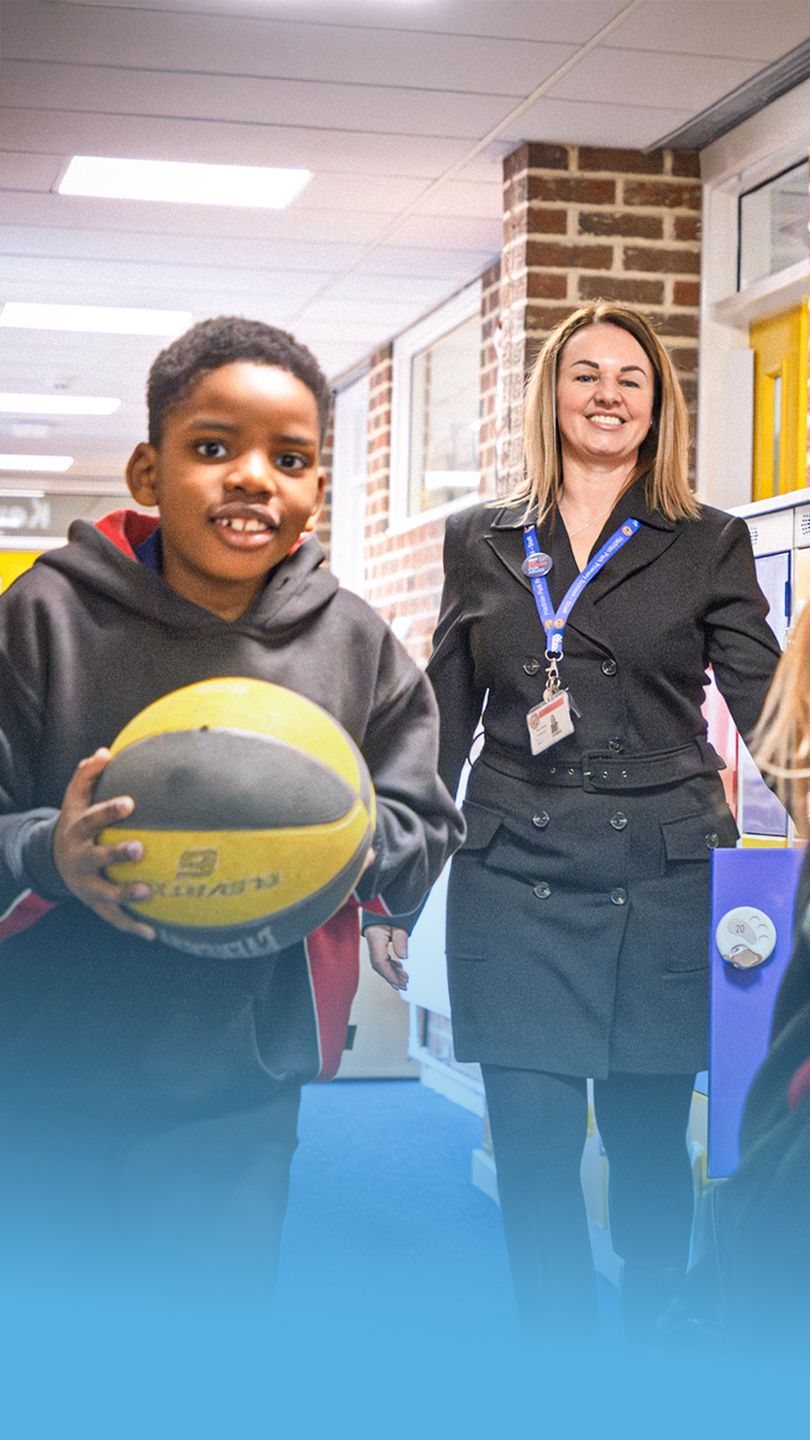
From engineering to education:
Angi’s career journey
She has worked in education since 2002, when she came to teaching from a career in engineering. “When I left school, I went into an engineering firm and worked there for 12 years. I had always wanted to be a physical education (PE) teacher; the job in engineering had, at the time, great prospects – but I couldn’t ignore the pull of education,” she says.
“My degree was in business and finance, so I knew I had good transferable skills. I joined the graduate teacher programme (GTP) in 2002. I had done some volunteering in local schools beforehand to see if it was something I wanted to do, even though it was going to mean a massive drop in salary compared with engineering.
“I successfully persuaded New York Primary in Tyne and Wear to become a host school for the GTP pathway, something it had not done before. While it had previously housed students, the school had not enrolled this type of trainee. After volunteering there for a few weeks, the school recognised my leadership skills and experience from my engineering background, which led it to agree to take me on. This was a new experience for both the school and me – effectively creating my own placement. I’m forever grateful to New York Primary for that.
“Since then, I’ve never looked back. Even in my GTP year, I led PE because I had a real passion for that. As a newly qualified teacher, I became the key stage two lead, working alongside the deputy head teacher. When she retired, I was able to secure that job, which was quite a fast-track progression,” Angi tells Leadership Focus.
Angi worked at New York Primary until September 2014, every year taking on different roles, whether that be secondments with the local authority, school sports coordinator or obesities coordinator, among a range of other roles. “Everything to do with sports and leadership, really,” she says.
After a stint as acting head teacher at a school in Corbridge, west of Newcastle upon Tyne, she moved to Hadrian Park in September 2014, then a one-and-a-half form entry primary and now a two-form entry school.
“Ever since I was a deputy head teacher, I have been involved in – and passionate about – NAHT. NAHT has evolved hugely since I first joined – it has become so much more diverse. Moving on to national executive was almost like a natural progression in many respects,” she says.
From engineering to education:
Angi’s career journey
She has worked in education since 2002, when she came to teaching from a career in engineering. “When I left school, I went into an engineering firm and worked there for 12 years. I had always wanted to be a physical education (PE) teacher; the job in engineering had, at the time, great prospects – but I couldn’t ignore the pull of education,” she says.
“My degree was in business and finance, so I knew I had good transferable skills. I joined the graduate teacher programme (GTP) in 2002. I had done some volunteering in local schools beforehand to see if it was something I wanted to do, even though it was going to mean a massive drop in salary compared with engineering.
“I successfully persuaded New York Primary in Tyne and Wear to become a host school for the GTP pathway, something it had not done before. While it had previously housed students, the school had not enrolled this type of trainee. After volunteering there for a few weeks, the school recognised my leadership skills and experience from my engineering background, which led it to agree to take me on. This was a new experience for both the school and me – effectively creating my own placement. I’m forever grateful to New York Primary for that.
“Since then, I’ve never looked back. Even in my GTP year, I led PE because I had a real passion for that. As a newly qualified teacher, I became the key stage two lead, working alongside the deputy head teacher. When she retired, I was able to secure that job, which was quite a fast-track progression,” Angi tells Leadership Focus.
Angi worked at New York Primary until September 2014, every year taking on different roles, whether that be secondments with the local authority, school sports coordinator or obesities coordinator, among a range of other roles. “Everything to do with sports and leadership, really,” she says.
After a stint as acting head teacher at a school in Corbridge, west of Newcastle upon Tyne, she moved to Hadrian Park in September 2014, then a one-and-a-half form entry primary and now a two-form entry school.
“Ever since I was a deputy head teacher, I have been involved in – and passionate about – NAHT. NAHT has evolved hugely since I first joined – it has become so much more diverse. Moving on to national executive was almost like a natural progression in many respects,” she says.
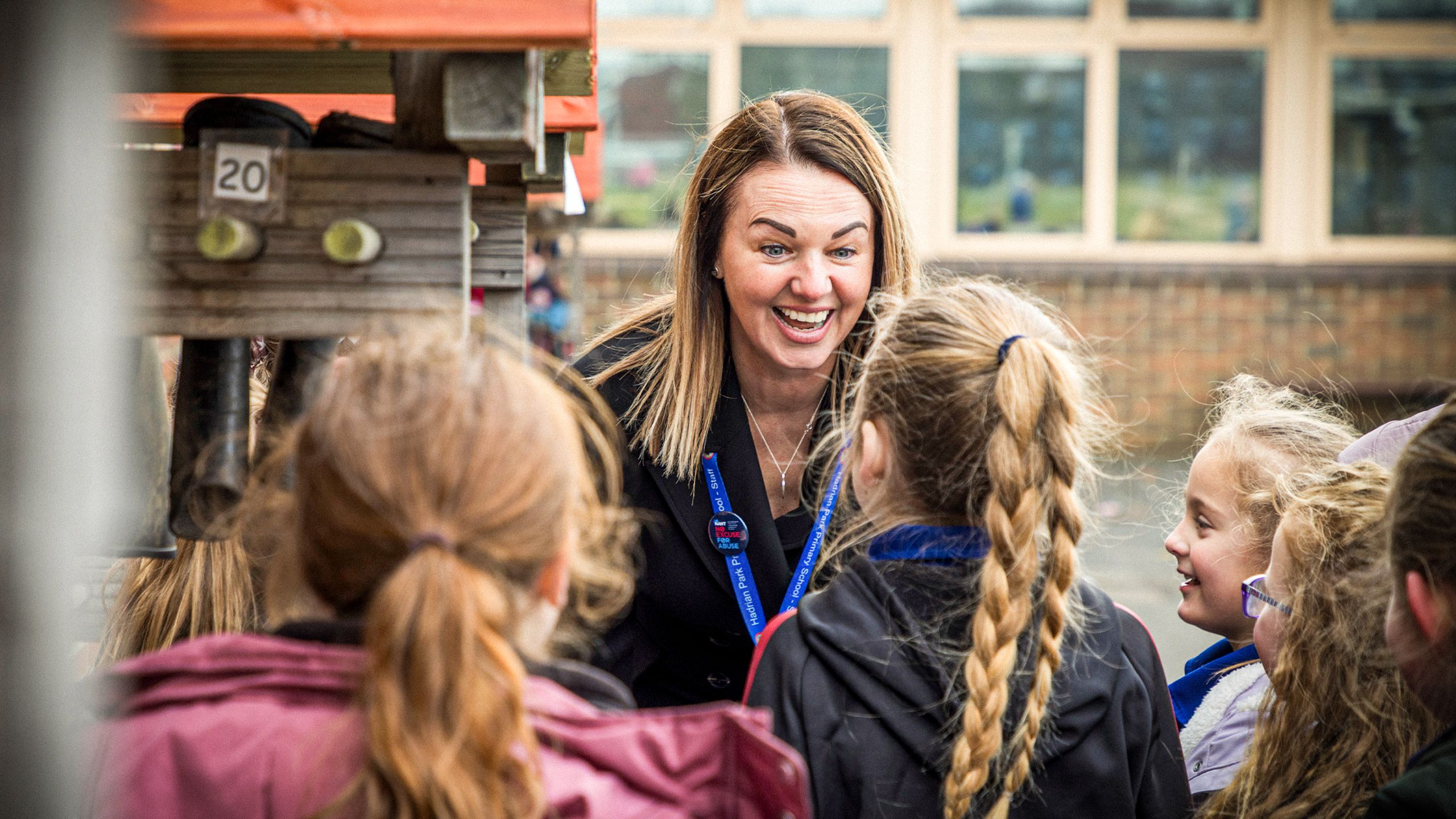
Empowering leadership:
Shaping futures with passion and purpose
The youngest of four siblings, Angi is now a single parent with two children and a loyal circle of friends, and she insists that, despite the long hours, she still manages to retain a social life outside of school.
“Head teachers are fire-fighters, extreme negotiators and dream-makers all wrapped into one. Every day, we’re trying to make the impossible possible, and most days, we manage it,” she says.
“I’m very much a realist but a positive realist. I try to see the joy and laughter in everything I do; I’m a glass-half-full person, even though I don’t like to beat around the bush. I try to lead by example.
“No one school is easier to work in than another. As a school leader, I feel you’re just dealing with a different set of problems. There will always be different demands on you and varying levels of stress, issues and challenges; running a school is, in many respects, like nurturing your own children. You can’t do anything the same way; you always have to be aware of the context, surroundings and community.
“My ethos is all about ‘every child matters, and every single day matters’. Our children get one shot at primary school, so it has to fulfil every aspiration to make them lifelong learners. To inspire them, and allow them to aspire at the same time, to follow their dreams,” Angi emphasises.
Indeed, Angi has dedicated her career to challenging barriers, holding decision-makers accountable and ensuring that every child, regardless of background, has the chance to thrive.
“I am who I am because of the incredible people I’ve been fortunate enough to have around me: my family, my friends, my colleagues and, most importantly, every pupil I’ve ever encountered. Every person I’ve worked alongside and every child I’ve taught has shaped me in some way,” she says.
“True leadership isn’t about standing alone but about recognising and harnessing the strengths of those around you. The best leaders aren’t the ones with all the answers; they are the ones who bring out the best in others.
“It is about unlocking children’s potential, helping them understand they can be whoever they want to be, as long as they have the right passion, work ethic and level of self-efficacy. It comes down to how they think, behave and react to circumstances.
“How can we help them see beyond their back garden, context and community? To see what is out there and what is available, regardless of their family, area or what they are used to. It is about trying to break the norm,” Angi continues.
“It is also about having the right staff standing by your side, ensuring we enable every parent to see that their experiences don’t have to determine their child’s future. More clearly, I’d like to convey that being a school leader is as much about inspiring people and fostering creativity as it is about hard work and determination.
“The strength of a school comes from its people. We need leaders who inspire, challenge and empower, not just manage.
“We have an impact on children’s lives, and we help shape their future. That, to me, is a massive honour,” Angi adds.


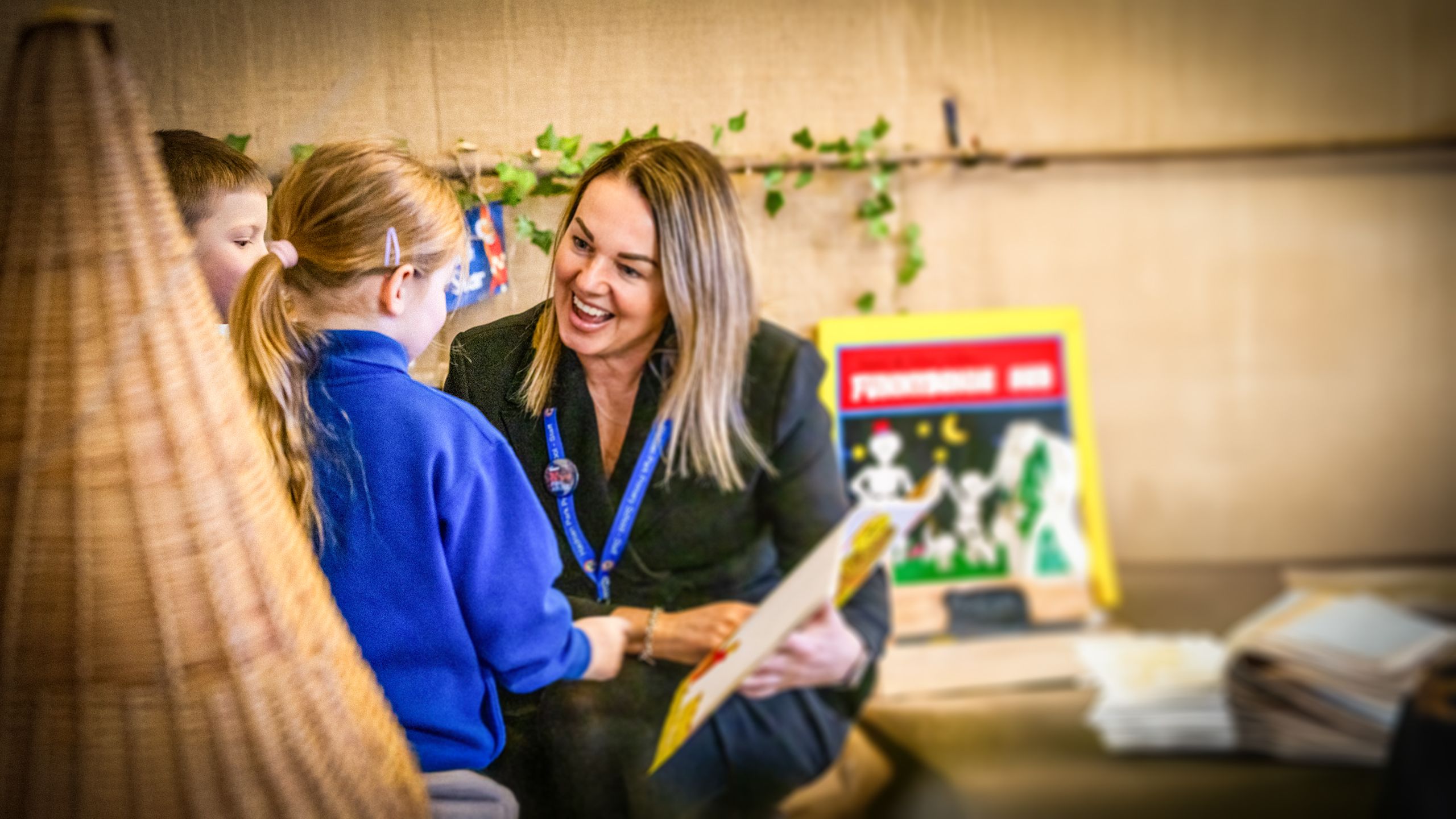
Empowering leadership:
Shaping futures with passion and purpose
The youngest of four siblings, Angi is now a single parent with two children and a loyal circle of friends, and she insists that, despite the long hours, she still manages to retain a social life outside of school.
“Head teachers are fire-fighters, extreme negotiators and dream-makers all wrapped into one. Every day, we’re trying to make the impossible possible, and most days, we manage it,” she says.
“I’m very much a realist but a positive realist. I try to see the joy and laughter in everything I do; I’m a glass-half-full person, even though I don’t like to beat around the bush. I try to lead by example.
“No one school is easier to work in than another. As a school leader, I feel you’re just dealing with a different set of problems. There will always be different demands on you and varying levels of stress, issues and challenges; running a school is, in many respects, like nurturing your own children. You can’t do anything the same way; you always have to be aware of the context, surroundings and community.
“My ethos is all about ‘every child matters, and every single day matters’. Our children get one shot at primary school, so it has to fulfil every aspiration to make them lifelong learners. To inspire them, and allow them to aspire at the same time, to follow their dreams,” Angi emphasises.
Indeed, Angi has dedicated her career to challenging barriers, holding decision-makers accountable and ensuring that every child, regardless of background, has the chance to thrive.
“I am who I am because of the incredible people I’ve been fortunate enough to have around me: my family, my friends, my colleagues and, most importantly, every pupil I’ve ever encountered. Every person I’ve worked alongside and every child I’ve taught has shaped me in some way,” she says.
“True leadership isn’t about standing alone but about recognising and harnessing the strengths of those around you. The best leaders aren’t the ones with all the answers; they are the ones who bring out the best in others.
“It is about unlocking children’s potential, helping them understand they can be whoever they want to be, as long as they have the right passion, work ethic and level of self-efficacy. It comes down to how they think, behave and react to circumstances.
“How can we help them see beyond their back garden, context and community? To see what is out there and what is available, regardless of their family, area or what they are used to. It is about trying to break the norm,” Angi continues.
“It is also about having the right staff standing by your side, ensuring we enable every parent to see that their experiences don’t have to determine their child’s future. More clearly, I’d like to convey that being a school leader is as much about inspiring people and fostering creativity as it is about hard work and determination.
“The strength of a school comes from its people. We need leaders who inspire, challenge and empower, not just manage.
“We have an impact on children’s lives, and we help shape their future. That, to me, is a massive honour,” Angi adds.

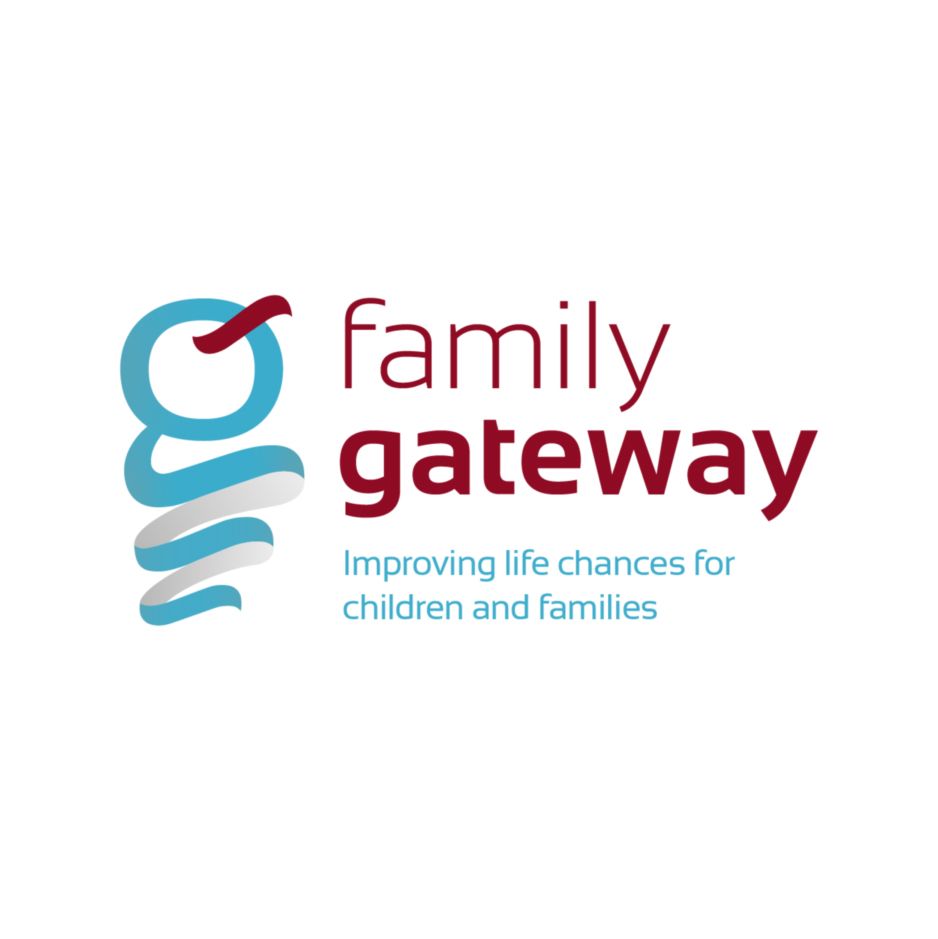
Supporting communities:
Angi Gibson’s
chosen charity
Angi Gibson’s chosen charity for her presidential year will be Family Gateway, which works to improve the lives of individuals, families and communities across the north east of England.
“It is a charity that is very close to my school, families and community,” she tells Leadership Focus.
“I believe in the importance of giving back, and I want to support them by providing funds that will help them continue their invaluable work and create even greater opportunities for those they serve,” Angi adds.
You can find out more about Family Gateway by clicking the button below.
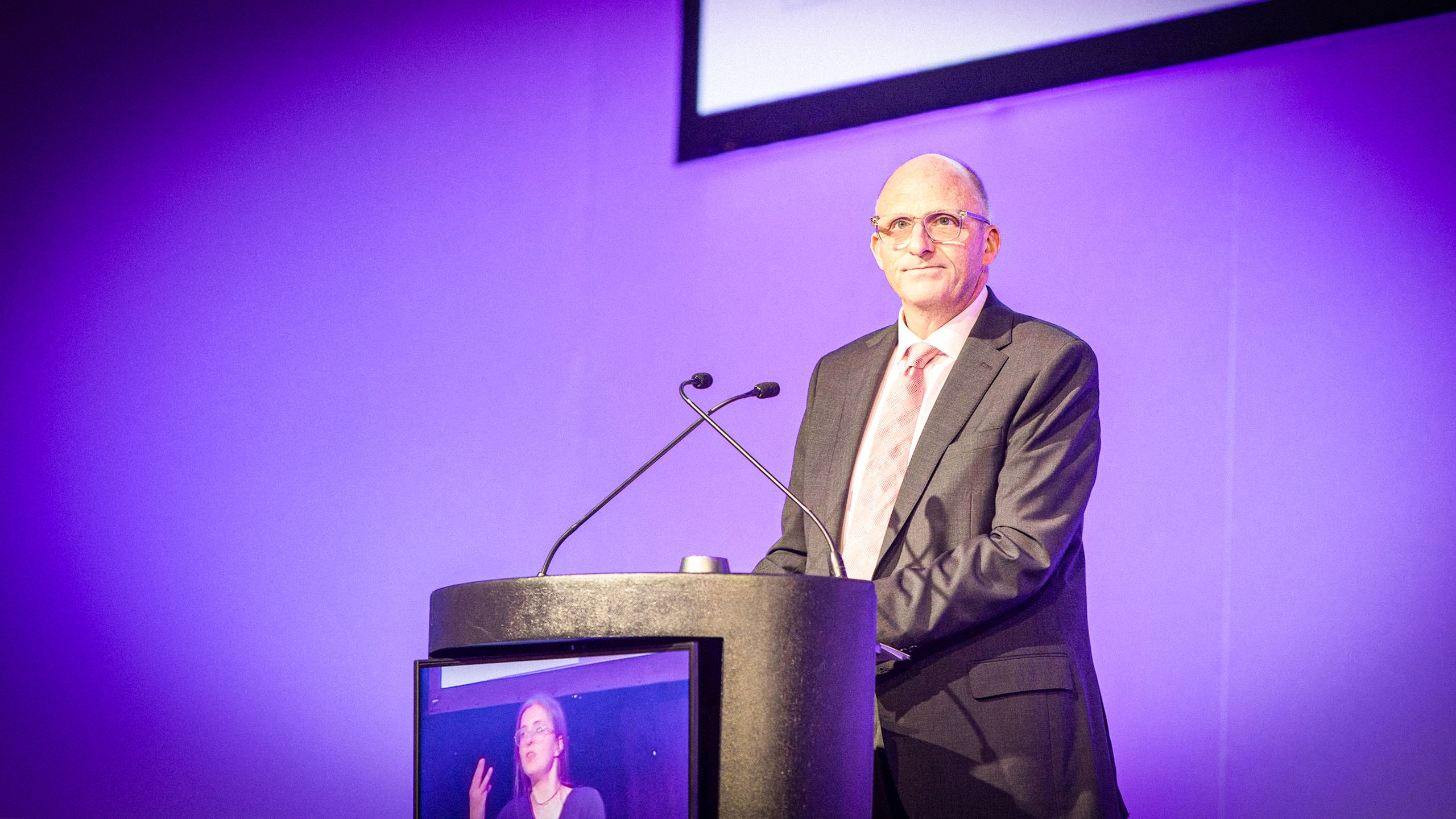
Harrogate Conference:
Rebuilding education, shaping futures
The theme for this year’s NAHT Annual Conference in Harrogate will be ‘Rebuilding education, shaping futures’. The conference will run from Friday 2 to Saturday 3 May 2025 at the Harrogate Convention Centre.
PAUL WHITEMAN,
NAHT GENERAL SECRETARY
With expectations – and the appetite – for change high after the arrival of a new Labour administration last summer, it is likely there may be a sense of impatience, even frustration, among some members, concedes NAHT general secretary Paul Whiteman.
“This year, I think it is going to be a tough conference, actually,” he tells Leadership Focus. “The last two conferences were really about, very vocally, putting the case against a failing government. The last administration was clearly in crisis over those two years; it was achieving very little, causing our members all sorts of pain and distress and letting young people down,” Paul continues.
“In a sense, however, that is quite easy to object to – you stand back and criticise. We now have a new administration that has invited us in, so we have started forming more of a social partnership. We are in those conversations.
“And yet, this is also an administration that will struggle for all sorts of reasons. There is no money, and it is the first Labour administration for some time, so it has to find its feet.
“Therefore, we have to play a more sophisticated role – making sure we help a government that wants to work alongside the profession, as it has clearly stated, and is beginning to make choices and changes that we have been campaigning to achieve for some time. At the same time, we must maintain our political independence and criticise the government at every turn when it gets things wrong,” he adds.
MAGNUS GORHAM,
NAHT ASSISTANT GENERAL SECRETARY (DEMOCRACY AND GOVERNANCE)
At the time of writing, the process of gathering in motions was only just beginning, but it is likely that the priorities occupying members’ minds will be little changed from those of previous conferences, says Magnus Gorham, NAHT assistant general secretary (democracy and governance).
“Yes, the government has hit the ground running and is working to get a lot done, but there remain a lot of big barriers that will not be solved or changed quickly. Ofsted and accountability, workload, funding, retention and recruitment, and special needs funding – all these are complex issues,” he tells Leadership Focus.
“For members, what they experience at school level probably doesn’t feel very different from before – yet. The hope is that this will change in time. On a relationship basis, we have a better relationship with this government than the previous administration, as you might expect.
“We are hopeful we can help pull the levers to move things in the right direction. However, we also have to recognise that we are still facing big challenges and problems as a profession.
“I sense members are waiting with anticipation, but there is an anxiety around when change will happen. There is impatience to see the results of the – positive – change of tone we have seen from this government,” Magnus adds.
Like any ‘rebuilding’ project, seeing the results can take time, especially when you’re living with the mess and chaos of a building site. So, the message for members will be very much about patience and perseverance, agrees Paul in conclusion.
“When you’re working alongside a government that wants to work with you, you’re not going to get everything all in one go. And that sometimes involves compromises and an understanding that it is an iterative process and that you are on a journey towards what you want to achieve,” he tells Leadership Focus.
“Getting that balance right is quite tough. But it is about having that mature approach. The conference will very much be an opportunity for us to talk to members, and for members to talk to us, about where they are satisfied and where they are less able to be patient with the government,” he adds.
For more information about this year’s conference, please click the button below.

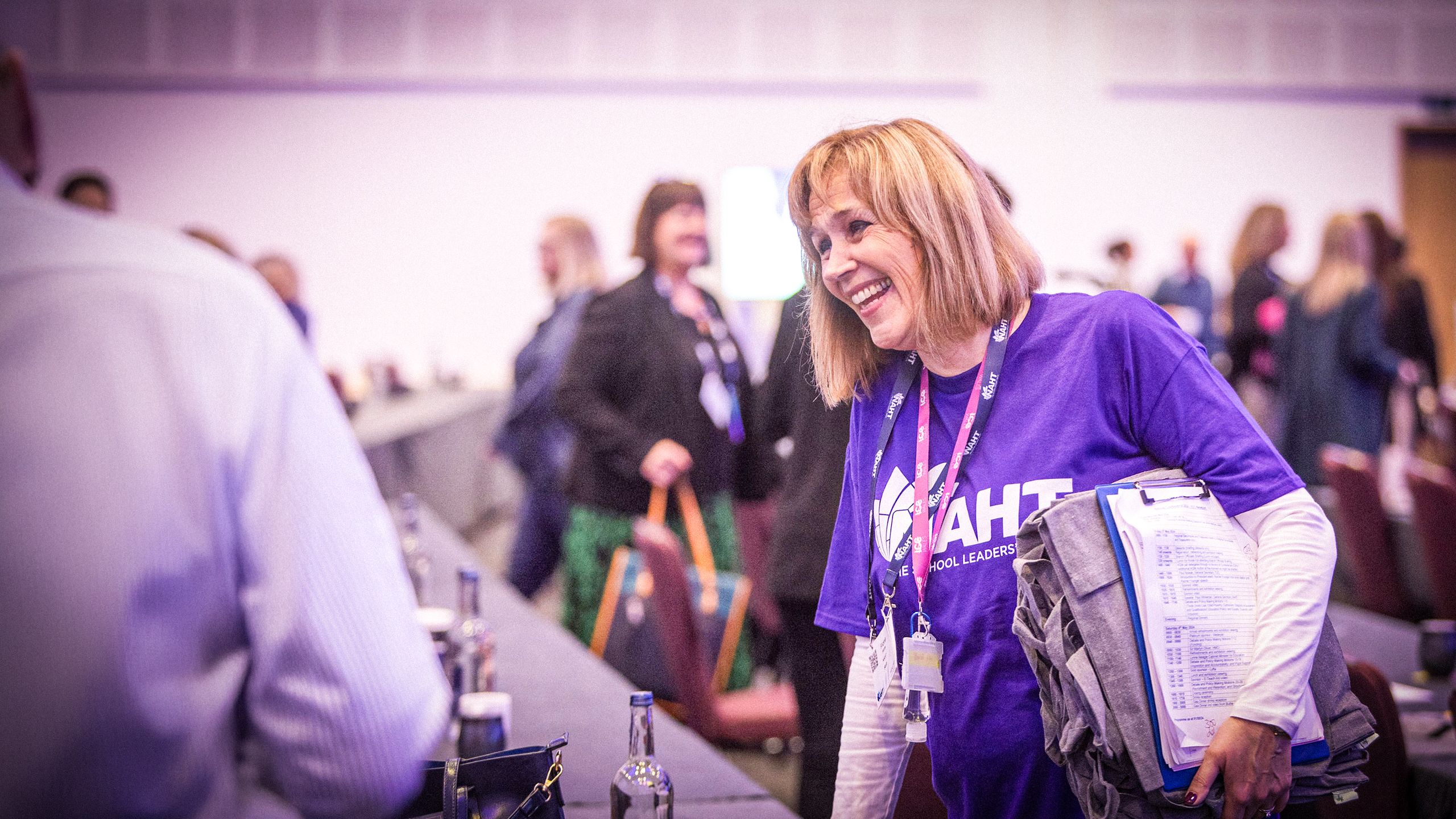
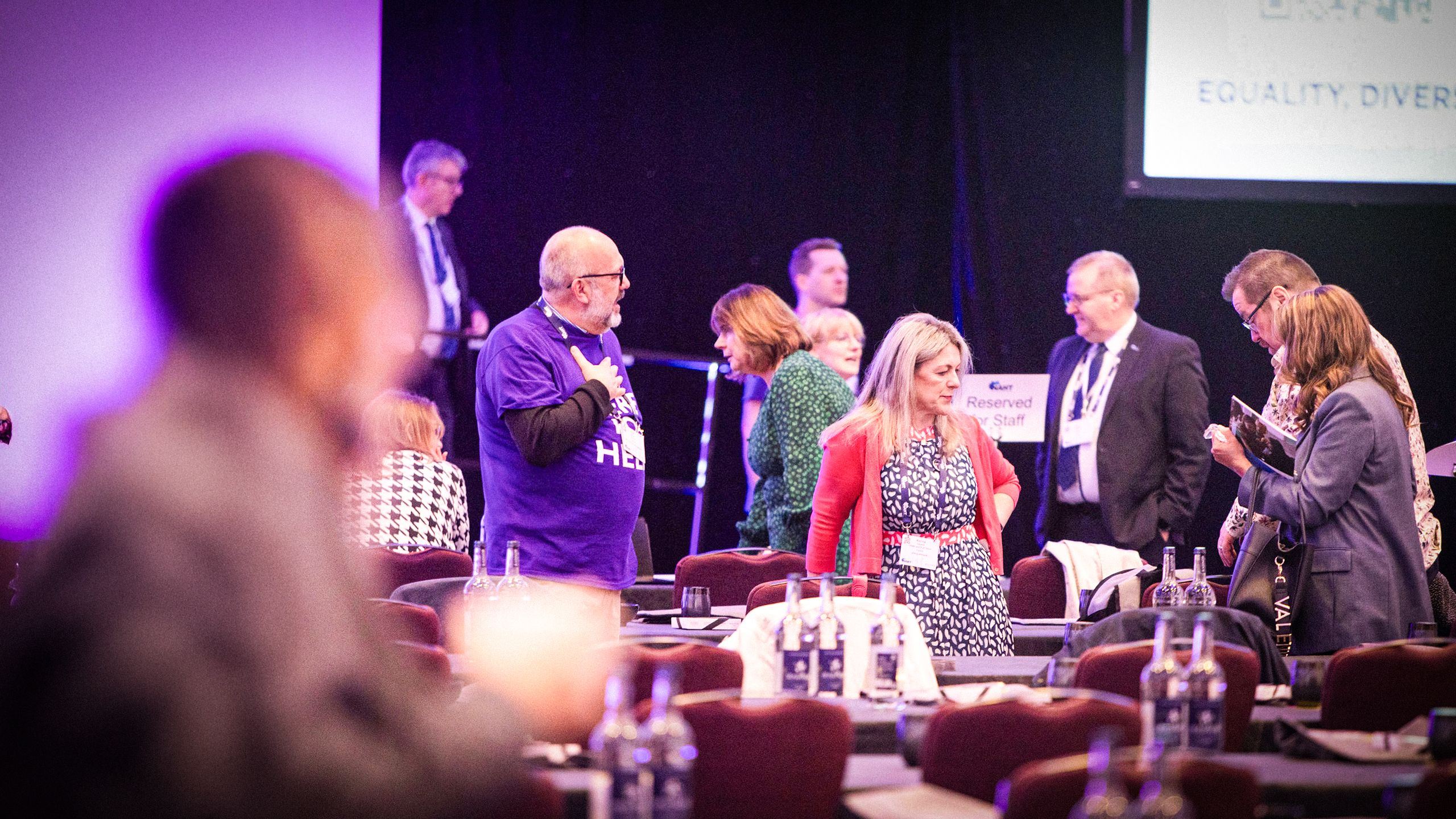
Harrogate Conference:
Rebuilding education, shaping futures
The theme for this year’s NAHT Annual Conference in Harrogate will be ‘Rebuilding education, shaping futures’. The conference will run from Friday 2 to Saturday 3 May 2025 at the Harrogate Convention Centre.
PAUL WHITEMAN,
NAHT GENERAL SECRETARY
With expectations – and the appetite – for change high after the arrival of a new Labour administration last summer, it is likely there may be a sense of impatience, even frustration, among some members, concedes NAHT general secretary Paul Whiteman.
“This year, I think it is going to be a tough conference, actually,” he tells Leadership Focus. “The last two conferences were really about, very vocally, putting the case against a failing government. The last administration was clearly in crisis over those two years; it was achieving very little, causing our members all sorts of pain and distress and letting young people down,” Paul continues.
“In a sense, however, that is quite easy to object to – you stand back and criticise. We now have a new administration that has invited us in, so we have started forming more of a social partnership. We are in those conversations.
“And yet, this is also an administration that will struggle for all sorts of reasons. There is no money, and it is the first Labour administration for some time, so it has to find its feet.
“Therefore, we have to play a more sophisticated role – making sure we help a government that wants to work alongside the profession, as it has clearly stated, and is beginning to make choices and changes that we have been campaigning to achieve for some time. At the same time, we must maintain our political independence and criticise the government at every turn when it gets things wrong,” he adds.
MAGNUS GORHAM,
NAHT ASSISTANT GENERAL SECRETARY (DEMOCRACY AND GOVERNANCE)
At the time of writing, the process of gathering in motions was only just beginning, but it is likely that the priorities occupying members’ minds will be little changed from those of previous conferences, says Magnus Gorham, NAHT assistant general secretary (democracy and governance).
“Yes, the government has hit the ground running and is working to get a lot done, but there remain a lot of big barriers that will not be solved or changed quickly. Ofsted and accountability, workload, funding, retention and recruitment, and special needs funding – all these are complex issues,” he tells Leadership Focus.
“For members, what they experience at school level probably doesn’t feel very different from before – yet. The hope is that this will change in time. On a relationship basis, we have a better relationship with this government than the previous administration, as you might expect.
“We are hopeful we can help pull the levers to move things in the right direction. However, we also have to recognise that we are still facing big challenges and problems as a profession.
“I sense members are waiting with anticipation, but there is an anxiety around when change will happen. There is impatience to see the results of the – positive – change of tone we have seen from this government,” Magnus adds.
Like any ‘rebuilding’ project, seeing the results can take time, especially when you’re living with the mess and chaos of a building site. So, the message for members will be very much about patience and perseverance, agrees Paul in conclusion.
“When you’re working alongside a government that wants to work with you, you’re not going to get everything all in one go. And that sometimes involves compromises and an understanding that it is an iterative process and that you are on a journey towards what you want to achieve,” he tells Leadership Focus.
“Getting that balance right is quite tough. But it is about having that mature approach. The conference will very much be an opportunity for us to talk to members, and for members to talk to us, about where they are satisfied and where they are less able to be patient with the government,” he adds.
For more information about this year’s conference, please click the button below.




